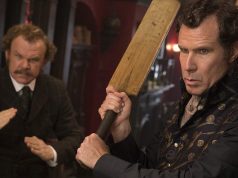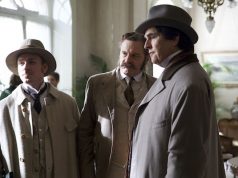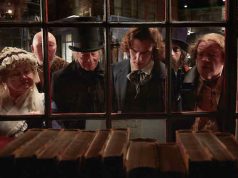If you have the opportunity to see a production of Oscar Wilde’s “The Importance of Being Earnest,” you should take advantage of it. Even reading the play is enjoyable, so full of witticisms and quotable dialogue is it.
If you have the opportunity to see the movie — well, don’t avoid it, but don’t knock anyone down to get to the theater, either. It has neither the wit nor the timing of the play, though much of the charm has remained intact.
This comedy of manners mocks the frivolity of British high society at the turn of the last century. In it, a country gentleman named Jack (Colin Firth) has invented a fictitious brother named Ernest whom he often must go to London to bail out of trouble; in London, he IS Ernest, and he can do anything he pleases, since all his misdeeds will be blamed on someone who doesn’t exist.
Among his friends in town is Algernon (Rupert Everett), a directionless, unserious fellow with a similar scheme going: To get out of any unpleasant social engagement, he claims he must visit his fictitious friend Bunbury, who is a “permanent invalid” who takes ill at the most inopportune moments.
At present, Jack — or Ernest, as he is known here — is courting Algernon’s cousin Gwendolen (Frances O’Connor), daughter of the extremely haughty and commanding Lady Bracknell (Judi Dench). As luck would have it, Gwendolen has always dreamed of marrying a man named Ernest; unfortunately, of course, that’s not Ernest’s real name. When he casually wonders whether she would love him if he were called, oh, say, Jack, the answer is no.
Because this is a farce, albeit a tame and well-mannered one, eventually Algernon will wind up at Jack’s country estate, pretending to be Jack’s brother Ernest and courting Jack’s young ward Cecily (Reese Witherspoon). The matter of Jack’s parentage — he was a foundling, left in a handbag in a train station — will also become important. And it will end happily, of course.
The better performances are among the supporting roles, most emphatically by Judi Dench as the intimidating Lady Bracknell. A scene in which she interviews Jack to see whether he is worthy of her daughter is a humorous skewering of high-class ethics of the day. (Contrary to what you might suppose, she is not in favor of education: “I do not agree with anything that tampers with natural ignorance,” she says. Later, she warns, “Never speak disrespectfully of society. Only people who can’t get into it do that.”)
There is also much to admire in Tom Wilkinson as Doctor Chasuble, the delightfully flustered country clergyman; and Anna Massey as Miss Prism, Cecily’s spinsterly tutor who gets a little red in the face every time Doctor Chasuble comes around.
With the leads, you get good but not great. Rupert Everett doesn’t seem to be having nearly as much fun as he did with 1999’s “An Ideal Husband,” another Wilde play adapted and directed by Oliver Parker. Colin Firth has more zeal as Jack, and a few moments hint at the great heights to which the film could have attained — a fight over muffins in the garden, for example, is often a centerpiece in live productions and is given proper attention here.
Where Parker fails is in the final 30 minutes, which should have taken 15. Any comedy will live or die by its finale — if the film is a joke, then the last reel is the punchline — and this one is woefully drawn-out and mishandled. Parker has preserved most of Wilde’s punchy dialogue, but not enough of his spirit — the ingredients, but only a touch of the flavor.
B- (; )





